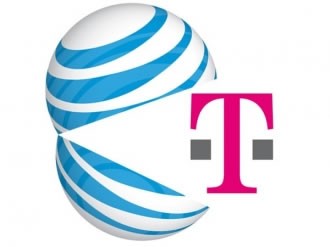American mobile carrier AT&T has pulled out of its controversial $39bn purchase of Deutsche Telekom's T-Mobile USA division after giving in to massive regulatory pressure. The much-publicized move would have made them the largest mobile carrier in the United States, overtaking current leader Verizon Wireless.
Withdrawing from seeking approval from the Federal Communications Commission in a bid to primarily focus on the ongoing case with the US Department of Justice is considered by many to have been the final nail in the coffin. It backfired when the Judge presiding over the case criticized the two companies for backing out and handed them an ultimatum, fight it or end it.
The move leaves both companies scrambling for an alternative. Deutsche Telekom is struggling in the US marketplace and the deal gave them a way out. AT&T is fighting to address its shortage of wireless airwaves and will now have to foot the agreed $4bn compensation penalty this quarter for pulling out of the deal.
The deal, considered flawed from the beginning by many industry experts, was a massive miscalculation by AT&T. In an embarrassing twist of events, Randall Stephenson, the firm's chief executive promoted the planned acquisition on TV the very same day the US DoJ sued them to block the deal from going forward. Given the turn of events, and the genuine surprise at the resistance to the buyout, many are starting to question whether the carrier will see a change in management over the coming months.
Despite the record-breaking compensation package, T-Mobile's German owners are now facing a tough decision whether to invest billions of dollars into its ailing business, or whether to consider other options to exit the market. "There are very few occasions when you are forced to walk away from the table with $4 billion in your pocket and still feel like you've just been short-changed," said Thomas Wehmeier of Informa Telecoms & Media when speaking to Reuters.
Both firms were in the news yesterday as it became public knowledge that T-Mobile was considering jettisoning assets in a bid to convince regulators into allowing the merger deal. Talks to sell the assets reportedly went cold when the carriers realized it would be unlikely to make any difference at all.
